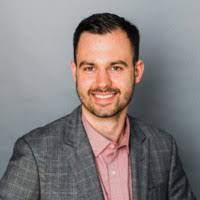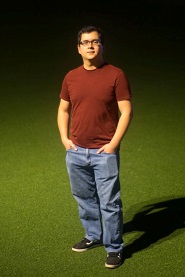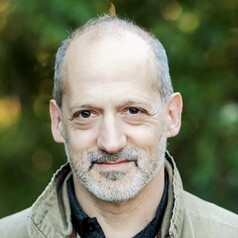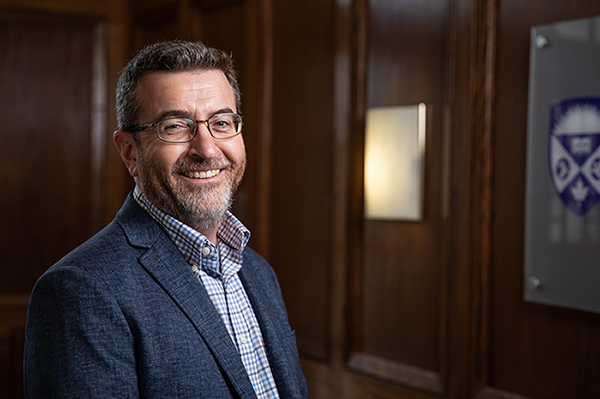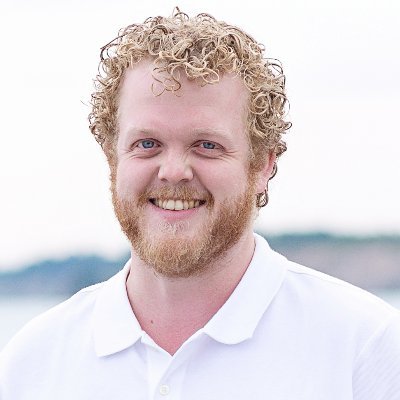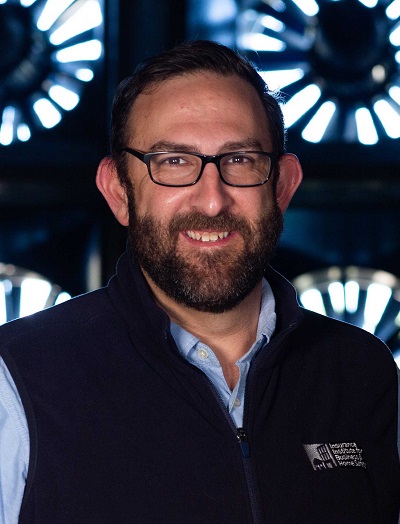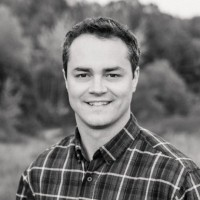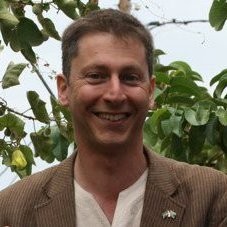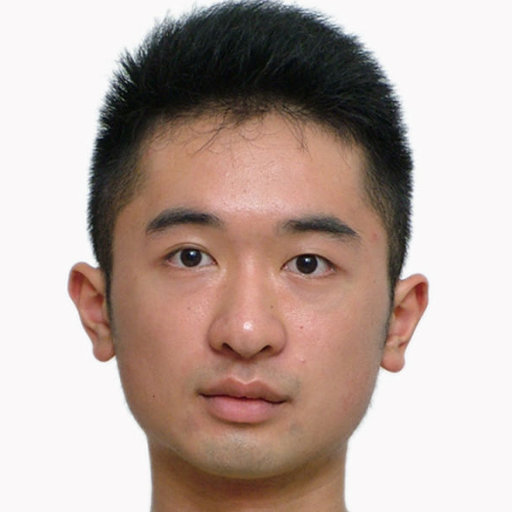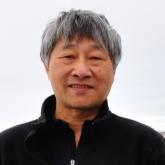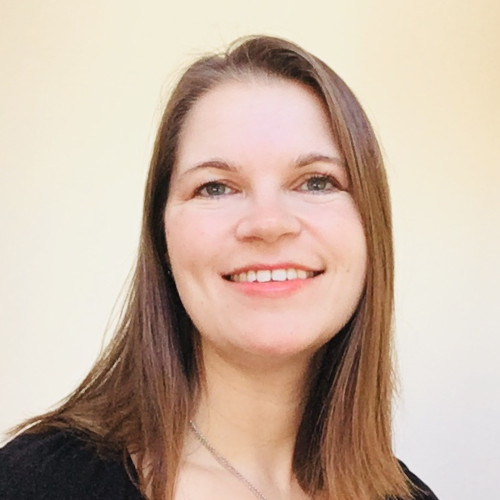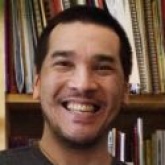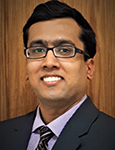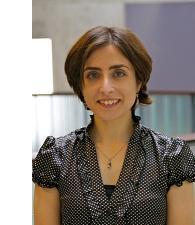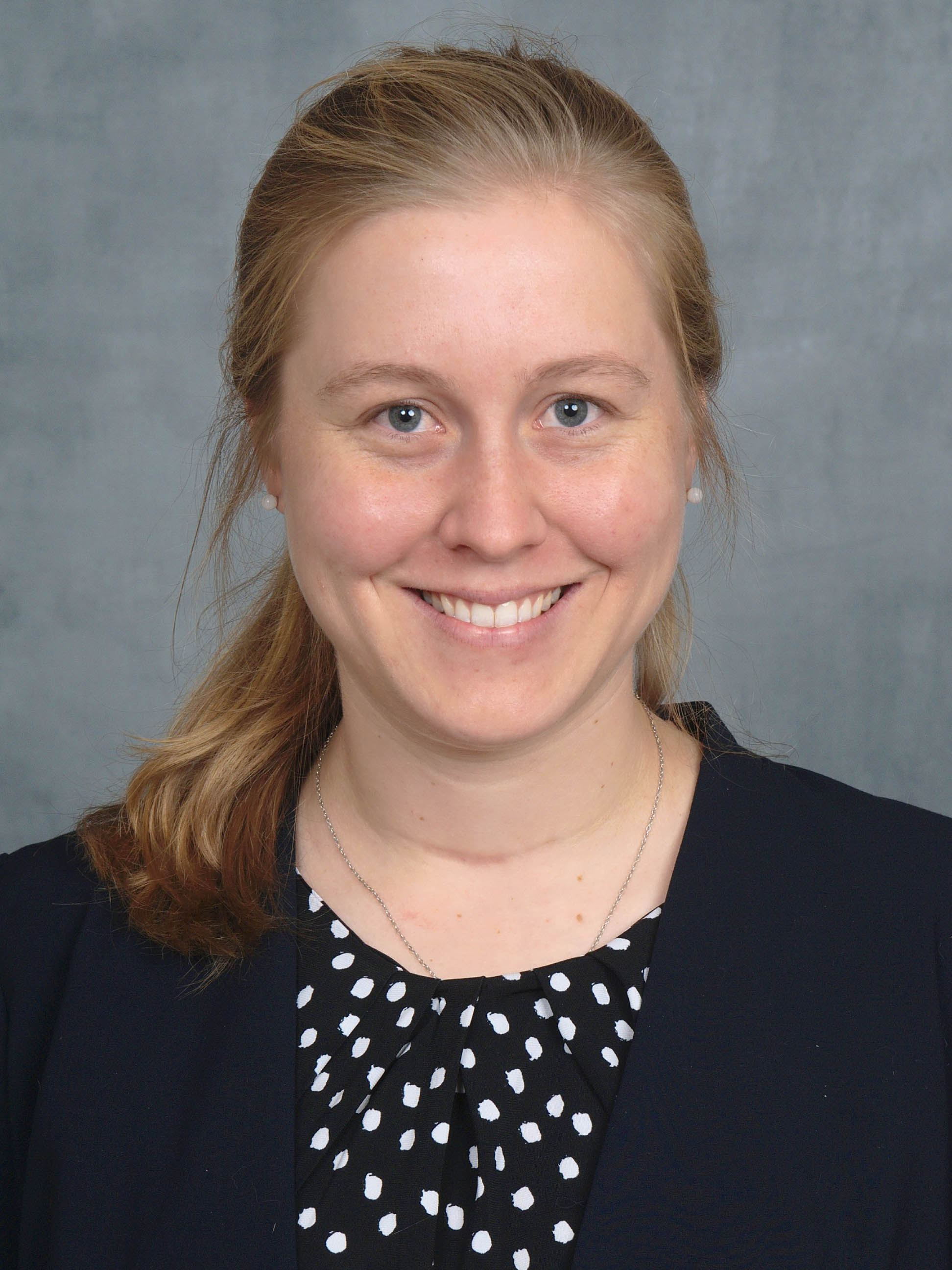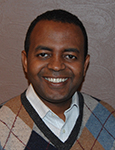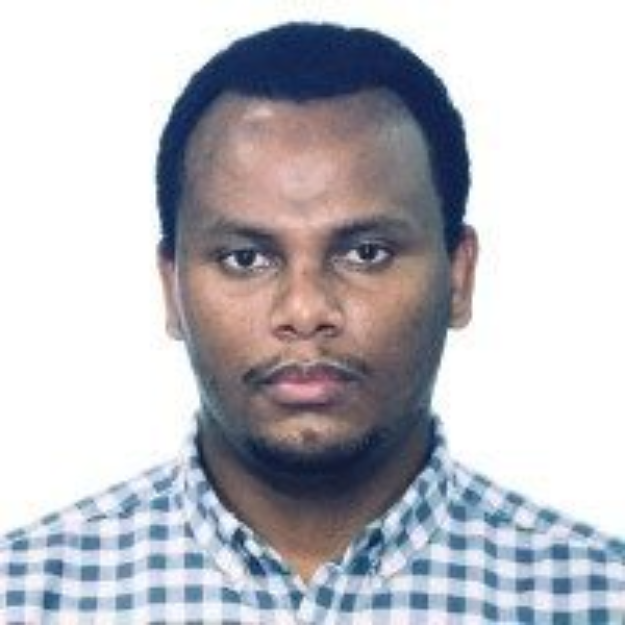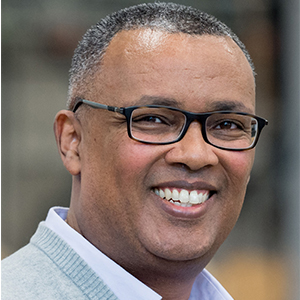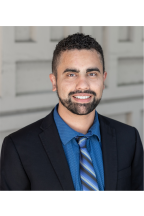Invited Speakers
Speakers
|
Dr. Julian Brimelow |
Title talk: The Northern Hail Project: 2023 year in review Bio/ Synopsis: Dr. Julian Brimelow is a convective weather expert with 20 years of experience studying severe thunderstorms, hail and high-impact hydrometeorological events. Most recently, he worked to improve the detection and prediction of severe hail using radar systems and computer models as a meteorologist for Environment and Climate Change Canada. Previously, Brimelow held posts for the South African Weather Service and the British Antarctic Survey. |
|
|
|
|
Northern Hail Project (NHP) |
|
Mr. Scott Kehler |
Title talk: Monitoring and Forecasting Hail at Weatherlogics Bio/ Synopsis: Mr. Scott Kehler has a long history of being a leader in the Canadian meteorological community. He has written peer-reviewed articles on Canadian weather phenomena and has been sought after as a weather expert; having appeared in countless media articles. Scott specializes in forecasting and researching high-impact weather, notably severe thunderstorms. His master's research on nocturnal thunderstorms from the Plains Elevated Convection at Night (PECAN) field project, a major US-based scientific study, has helped to advance our knowledge of thunderstorm development. Scott has a Master's of Science from the University of Manitoba and is the Chief Scientist at Weatherlogics Inc., a Winnipeg-based meteorological forecasting and research firm that he co-founded. |
|
|
|
|
Weatherlogics |
|
Mr. Simon Eng |
Title talk: The Northern Hail Project: Hail Damage Surveys/ The Didsbury EF4 Canada Day Tornado Survey Bio/ Synopsis: Research Meteorologist, Northern Hail Project |
|
|
|
|
Northern Hail Project (NHP) |
|
Dr. Keith Porter |
Title talk: The Northern Hail Project: Hail Benefit/Cost Analysis Bio/ Synopsis: Dr. Keith Porter is chief engineer of the Institute for Catastrophic Loss Reduction and adjunct research professor at Western University in London, Ontario. He helps governments and organizations improve disaster resilience. He led the Natural Hazard Mitigation Saves studies for the National Institute of Building Sciences, finding that disaster mitigation avoids up to $13 in loss per $1 of cost. He led engineering research on four groundbreaking USGS planning scenarios: ShakeOut, ARkStorm, Tsunami, and HayWired. Thanks to ShakeOut, 1% of the world’s population annually prepares for earthquakes. His doctoral research helped lead to FEMA’s revolutionary performance-based seismic design guideline FEMA P-58. Notable clients and sponsors include the National Research Council of Canada, California Earthquake Authority, and Southern California Edison. He is a licensed professional engineer and fellow of the Structural Engineering Institute and of the American Society of Civil Engineers. He holds civil and structural engineering degrees from UC Davis, UC Berkeley, and Stanford University. |
|
|
|
|
Institute for Catastrophic Loss Reduction (ICLR) |
|
Dr. David Sills |
Title talk: Detection of hail swaths with UAVs Bio/ Synopsis: Dr. David Sills is Executive Director of the Northern Tornadoes Project. He received a BSc in Atmospheric Science and Certificate in Meteorology from York University in 1993, as well as a PhD in Atmospheric Science from York University in 1998. He worked for more than 20 years as a severe weather scientist with Environment Canada, conducting research on Canadian tornadoes, severe weather nowcasting and mesoscale meteorology. He was awarded the CMOS Rube Hornstein Medal in Operational Meteorology and the Geoff Howell Citation of Excellence for Innovation. Dr. Sills is an adjunct professor with both Western’s Civil and Environmental Engineering Department and University of Manitoba’s Department of Environment & Geography. He serves as Associate Editor for the journals Atmosphere-Ocean and Monthly Weather Review. He is also a member of the ASCE Wind Speed Estimation in Tornadoes Committee charged with updating the EF scale. |
|
|
|
|
Northern Tornadoes Project (NTP) |
|
Dr. Connell Miller |
Title talk: Northern Tornadoes Project (NTP): Calgary disdrometer network/ The Didsbury EF4 Canada Day Tornado Survey Bio/ Synopsis: Dr. Connell Miller is currently a full-time "Wind Impacts Researcher" for the Northern Tornadoes Project at Western University. Through his academic work, and his placements at various engineering firms, he has developed a strong background in research engineering, forensic engineering, full-scale testing and instrumentation. |
|
|
|
|
Northern Tornadoes Project (NTP) |
|
Mr. Adam Skinner |
Title talk: Instant Weather: Pro Radar Updates & Roadmap Bio/ Synopsis: Mr. Adam Skinner serves as the Founder & Director of Instant Weather Inc., a company dedicated to enhancing safety measures for individuals and businesses in the face of tornadoes and severe weather conditions. |
|
|
|
|
Instant Weather Inc |
|
Dr. Daniel Michelson |
Title talk: Canadian weather radar network renewal and the southern Ontario lidar mesonet Bio/ Synopsis: Dr. Daniel Michelson is an accomplished professional with a rich background in environmental research and management. With over 8 years of dedicated service at Environment and Climate Change Canada, he has consistently contributed to advancing the field of meteorological research. Currently serving as a Research Manager, Dr. Michelson has held this position since May 2018, demonstrating his leadership capabilities. |
|
|
|
|
Environment and Climate Change Canada |
|
Mr. Sudesh Boodoo |
Title talk: Improving hail detection and hail size estimates from polarimetric radar Bio/ Synopsis: |
|
|
|
|
Environment and Climate Change Canada |
|
Mr. Issam Mohamed |
Title talk: Analyzing Concurrent Hail, Extreme Wind, and Heavy Rainfall Events in Alberta, Canada: A Multivariate Statistical Approach Bio/ Synopsis: Mr. Issam Mohamed is a current PhD student in the Civil and Environmental Engineering Department at Western University. His research and studies have focused on a wide range of environmental engineering areas, including environmental assessment, water resources, stormwater management, infrastructure design, watershed protection, data management, statistical analysis, risk assessment for extreme weather events, sediment and erosion control, and environmental regulations. His academic journey reflects a dedication to addressing complex environmental challenges and contributing to innovative solutions in the field. |
|
|
|
|
Western University |
|
Mr. Yao Li |
Title talk: Statistical Analysis of CoCoRaHS database and future prospect for hail risk modeling Bio/ Synopsis: Mr. Yao Li is a PhD student at Western University with a strong background in statistical analysis and modeling. His skills include data analysis, linear regression, multivariate statistics, statistical inference, and time series analysis. He is proficient in R programming and applies his expertise to areas such as multivariate data analysis, logistic regression, and regression modeling. Mr. Li's academic focus underscores his dedication to statistical research and its practical applications. |
|
|
|
|
Western University |
|
Mr. Mark Gartner |
Title talk: Preliminary statistics from Calgary's new hail disdrometer network Bio/ Synopsis: |
|
|
|
|
Northern Hail Project (NHP) |
|
Mr. Xiao Ma |
Title talk: High-resolution WRF simulation of extreme winds in Canada: Present and Future scenarios Bio/ Synopsis: Mr. Xiao Ma specializes in meteorology and climatology, with a focus on the tendency analysis of wind energy using convection-permitting WRF simulation. His expertise lies in climate modeling and regional climate modeling, supported by his proficiency in numerical modeling. His work is dedicated to advancing our understanding of wind energy patterns and their impact, contributing to the field of meteorology and climate research. |
|
|
|
|
University of Saskatchewan |
|
Dr. Xuebin Zhang |
Title talk: Bio/ Synopsis: Dr. Xuebin Zhang is Senior Research Scientist with Climate Research Division, Environment and Climate Change Canada. His main research interest is the understanding of how and why the climate, in particular its extreme weather and climate events, has changed over the past century and how it is likely to change in the future. He works closely with the users of climate information. He is a Fellow of the Royal Society of Canada. He serves as Editor-in-Chief for journal Weather and Climate Extremes. He served as a coordinating lead author for the chapter on Weather and Climate Extreme Events in a Changing Climate of the IPCC 6th Assessment WGI Report, and he was also a lead author for the IPCC Special Report on managing the risks of extreme events and the 5th Assessment Working Group I Report. He led the assessment on changes in temperature and precipitation for Canada’s Changing Climate Report.
|
|
|
|
|
Pacific Climate Impacts Consortium |
|
Dr. Mercè Casas-Prat |
Title talk: Coastal compound flooding and the role of internal climate variability
Bio/ Synopsis: Dr. Mercè Casas-Prat is a Research Scientist and the lead on ocean wave climate extremes at the Climate Research Division of Environment and Climate Change Canada, based in Toronto. She has more than ten years of experience in the field of ocean wave climate modelling, data analysis and climate research, with a background in coastal and civil engineering. Her research has placed special focus on developing datasets and statistical methodologies to improve understanding of the climate change-driven future changes in ocean wave extreme conditions from global to regional scales to inform climate change adaptation. She has extended her research to explore machine learning approaches, and the so-called compound events – hazardous events that results from the combination of multiple drivers such as coastal flooding derived from the combination of heavy precipitation, high storm surges and waves. The results of her research have been used for national impact assessments, such as to update CanCoast (the national-scale framework for characterizing Canada’s marine coasts vulnerability), and been widely cited in the latest IPCC reports. In 2020, her studies about the future Arctic Ocean wave climate were highlighted as Nature Research Highlight and featured in The Globe and the Mail. She is Co-Chair of the Coordinated Ocean Wave Climate Project (COWCLiP), an international effort that has helped advance the understanding of future changes in wave conditions.
|
|
|
|
|
Environment and Climate Change Canada |
|
Ms. Natalie Salkauskis |
Title talk: Toronto Water: Building Resilience Bio/ Synopsis: Ms. Natalie Salkauskis is an experienced Senior Engineer in the areas of design, regulatory compliance and policy for stormwater management and collection systems. Natalie graduated from the University of Guelph with an Environmental Engineering degree. Her career has progressed though roles in engineering consulting, at the Ontario Ministry of the Environment, Conservation and Parks (MECP) and now with Toronto Water since 2018. Current areas of focus for Natalie include Toronto’s sanitary and stormwater management Consolidated Linear Infrastructure Environmental Compliance Approvals (CLI ECAs), climate change impacts on stormwater management, and servicing for growth. Natalie is also a passionate gardener and outdoors person who adores her bicycle commute along Toronto’s waterfront all year round. |
|
|
|
|
City of Toronto |
|
Dr. Alex J. Cannon |
Title talk: Stronger evidence for increases in short-duration extreme rainfall in Canada: observed trends and links with warming
Bio/ Synopsis: Dr. Alex J. Cannon is a Research Scientist with the Climate Research Division of Environment and Climate Change Canada in Victoria, BC. His work focuses on climate extremes and future projections of climate at global to regional scales, with a recent emphasis on climate variables of relevance to infrastructure codes and design standards in Canada. Dr. Cannon is an Editor-in-Chief of Atmosphere-Ocean, the journal of the Canadian Meteorological and Oceanographic Society (CMOS), and an associate editor of Advances in Statistical Climatology Meteorology and Oceanography. He is a past recipient of the CMOS President’s Prize, the Andrew Thomson Prize in Applied Meteorology, and the World Meteorological Organization Research Award for Young Scientists.
|
|
|
|
|
Environment and Climate Change Canada |
|
Dr. Ayan Sadhu |
Title talk: AI-enabled smart infrastructure management Bio/ Synopsis: Dr. Ayan Sadhu's research is focused on addressing the practical challenges of structural health monitoring while harnessing the capability of modern sensing technology. His current projects involve both theoretical as well as experimental research in areas including structural condition assessment, damage detection, pattern recognition, vibration control, Artificial Intelligence, and information modeling techniques of large-scale structures. This research resulted in numerous research articles, and the proposed algorithms have been successfully implemented in several full-scale structures including those located in North America and Europe. In 2021, Dr. Sadhu received the prestigious Early Researcher Award from the Ministry of Ontario. His research is also supported by NSERC Discovery and Alliance grants, CFI-JELF, Mitacs, and various industry partners. In 2022, Dr. Sadhu was the recipient of the Junior Faculty Award for Excellence in Research at Western Engineering.
|
|
|
|
|
Western University |
|
Dr. Oya Mercan |
Title talk: Real-Time Hybrid Simulation: Challenges, Innovations, and Applications Bio/ Synopsis: Dr. Oya Mercan is advancing hybrid simulation techniques that combine numerical models and experimental specimens using computer technology to determine how buildings will respond to seismic activity. The programming of the computational/control platform used to conduct experiments, which allows engineers to manipulate code, was developed in-house. Experimenting with a myriad of algorithms rather than being limited to predetermined programs, the research group has developed an integrated simulation framework that can seamlessly integrate numerical models in several analysis platforms and experimental specimens in geographically distributed laboratories. Multiple tests conducted across several laboratories worldwide is helping to develop technology that more accurately and efficiently predicts structural behaviour during extreme seismic events. Through this integrated simulation framework, a regional scale simulation will be possible which will help evaluate the resilience of urban infrastructure.
|
|
|
|
|
University of Toronto |
|
Dr. Katherine A. Flanigan |
Title talk: Enhancing Railroad System Resilience: An Automated Approach to On-Board Broken Rail Detection Bio/ Synopsis: Dr. Katherine Flanigan is an Assistant Professor in the Department of Civil and Environmental Engineering at Carnegie Mellon University (CMU). Flanigan also holds a courtesy appointment in the Department of Electrical and Computer Engineering at CMU. She received her PhD in Civil Engineering from the University of Michigan in 2020. At the University of Michigan, Flanigan was an NSF Graduate Research Fellow, recipient of the College of Engineering Richard and Eleanor Towner Prize for Outstanding PhD Research, and received Master’s degrees in Civil Engineering in 2016 as well as Electrical and Computer Engineering in 2018. Flanigan received her Bachelor’s degree in Civil and Environmental Engineering from Princeton University in 2014. Flanigan’s research draws upon tools and technologies from across disciplines (such as civil engineering, electrical engineering, and computer science) to transform traditional civil infrastructure and urban systems into “intelligent” and adaptable cyber-physical systems (CPS). She focuses on integrating sensing, computing, and actuation technologies to improve the performance, resilience, accessibility, and sustainability of infrastructure and urban systems. This includes, for example, developing novel wireless sensing technologies for smart city sensor networks, using CPS and modeling to track the health and resilience of critical infrastructure (at both single-asset and system levels), and leveraging cloud-based data management and analytics to control natural and physical urban systems.
|
|
|
|
|
Carnegie Mellon University |
|
Dr. Girma Bitsuamlak |
Title talk: Introduction to climate-resilient and sustainable built environments Bio/ Synopsis: Dr. Girma Bitsuamlak is a Professor in Wind Engineering. His research expertise is in climate-resilient and sustainable buildings and neighborhoods. Currently, his team is actively working on modeling of (i) extreme wind effects on civil infrastructure (e.g., hurricane and tornado), and (ii) interplay between aerodynamics and other micro-climate stressors for assessing sustainable building thermal and energy performance, natural ventilation, and wind-driven-rain/snow effects. His research utilizes a combination of computational fluid dynamics-based simulations (and assisted with Artificial Intelligence) by using a high-performance computing and physical experiments at WindEEE Research Facilities (www.windee.ca). Dr. Bitsuamlak serves Director both for the WindEEE Research Institute and WindEEE Research Facilities (The Dome + BLWTL+ 3LP) at Western and Western’s Site-leader for the Sharcnet computing center. He is a Fellow of the Canadian Society of Civil Engineers. He has executed wind-induced load and response studies for socially and historically significant super tall buildings such as Freedom Tower in New York, International Commerce Center in Hong Kong, and Burj Khalifa in Dubai in wind tunnels. He is an expert both in experimental and computational wind engineering.
|
|
|
|
|
Western University |
|
Dr. Wael El-Dakhakhni |
Title talk: Digital Twin for Flood Risk Quantification Bio/ Synopsis: Dr. Wael El-Dakhakhni is a distinguished researcher leading two impactful areas of study. His first research group, INViSiONLab, specializes in simulating complex systems to uncover vulnerabilities, systemic risks, and bolster resilience, employing advanced techniques like machine learning and data analytics. Simultaneously, his work in structural fragility and resilience involves evaluating infrastructure resilience in multi-hazard environments. Holding the Martini, Mascarin, and George Endowed Chair in Masonry Design and co-directing the McMaster Centre for Effective Design of Structures, he has garnered recognition through awards and affiliations with organizations such as ASCE, emphasizing his leadership in these fields.
|
|
|
|
|
McMaster University |
|
Mr. Dagimawi Eneyew |
Title talk: Digital twin for smart and sustainable buildings Bio/ Synopsis: Mr. Dagimawi Eneyew is a Ph.D. candidate in Software Engineering at Western University. He received his M.Sc. and B.Sc. in electrical and computer engineering from Addis Ababa University, Ethiopia. He has four years of experience in academics and professional software development. His research focuses on smart building digital twins, and machine learning.
|
|
|
|
|
Western University |
|
Dr. Solomon Tesfamariam |
Title talk: Multi-hazard risk assessment of oil and gas pipeline: Bayesian belief network based models Bio/ Synopsis: Dr. Solomon Tesfamariam, a Professor and University Research Chair in Civil and Environmental Engineering at the University of Waterloo, is a leader in sustainable tall-timber building design and infrastructure management tools. He previously held positions at the University of British Columbia and the National Research Council Canada, gaining valuable insights into industry challenges. Dr. Tesfamariam's pioneering work in multi-hazard tall timber building design has expanded international guidelines. He's recognized as an expert by the Council on Tall Buildings and Urban Habitat (CTBUH) and contributes to CSA O86 - Engineering Design in Wood. His research focuses on seismic risk assessment, risk-based aging infrastructure management, and decision-making tools for civil infrastructure.
|
|
|
|
|
University of Waterloo |
|
Dr. Carmine Galasso |
Title talk: Forward-looking catastrophe risk modeling for resilience: recent advances and perspectives Bio/ Synopsis: Dr. Carmine Galasso's research focuses on enhancing catastrophe risk modeling and disaster risk reduction using probabilistic and statistical methods. He assesses risks to infrastructure from natural hazards like earthquakes, strong winds, and flooding, with an emphasis on community assets in developing countries. He co-leads UCL's DE|RISC Lab with Dr. Gemma Cremen and Dr. Roberto Gentile, aiming to inform multi-hazard risk assessment and resilience-based decision-making for a safer, sustainable built environment.
|
|
|
|
|
University College London (UK) |
|
Dr. Rodrigo Costa |
Title talk: Human-centred disaster risk assessments as a tool to inform pre-disaster planning Bio/ Synopsis: Dr. Rodrigo Costa is an assistant professor at the Department of Systems Design Engineering at the University of Waterloo. Prof. Costa's research investigates how communities' physical, economic, and social systems interact to create disaster risk and exacerbate socioeconomic and racial inequalities. Beyond academic boundaries, Rodrigo has collaborated with emergency managers, urban planners, resilience officers, and insurance companies to advance the state of knowledge in disaster risk and subsequently distill that knowledge down to decisions that foster urban resilience. Prof. Costa works in the interface between engineering, planning, and social sciences. His research focuses on developing high-fidelity, high-detail regional risk models to simulate the impact of disasters on urban communities. Prof. Costa is interested in object-oriented models, agent-based simulation, hazard and exposure modelling, machine learning, optimization, and multi-stakeholder decision-making to inform urban resilience planning. Prof. Costa received the 2021 Best Graduate Paper Award from the Earthquake Engineering Research Institute for his contributions to the holistic simulation of disaster impacts on communities.
|
|
|
|
|
University of Waterloo |


